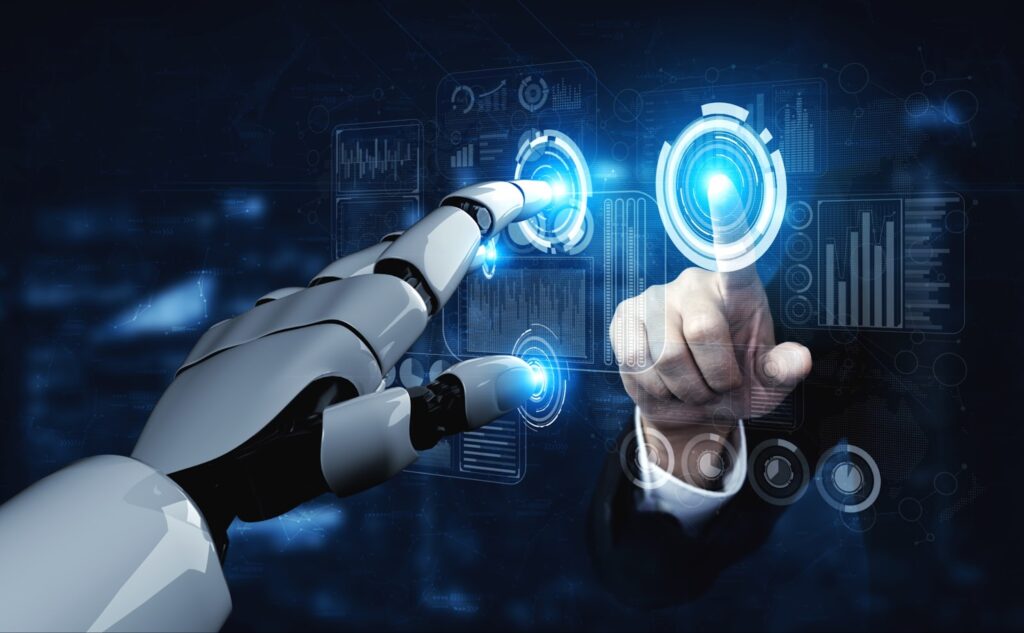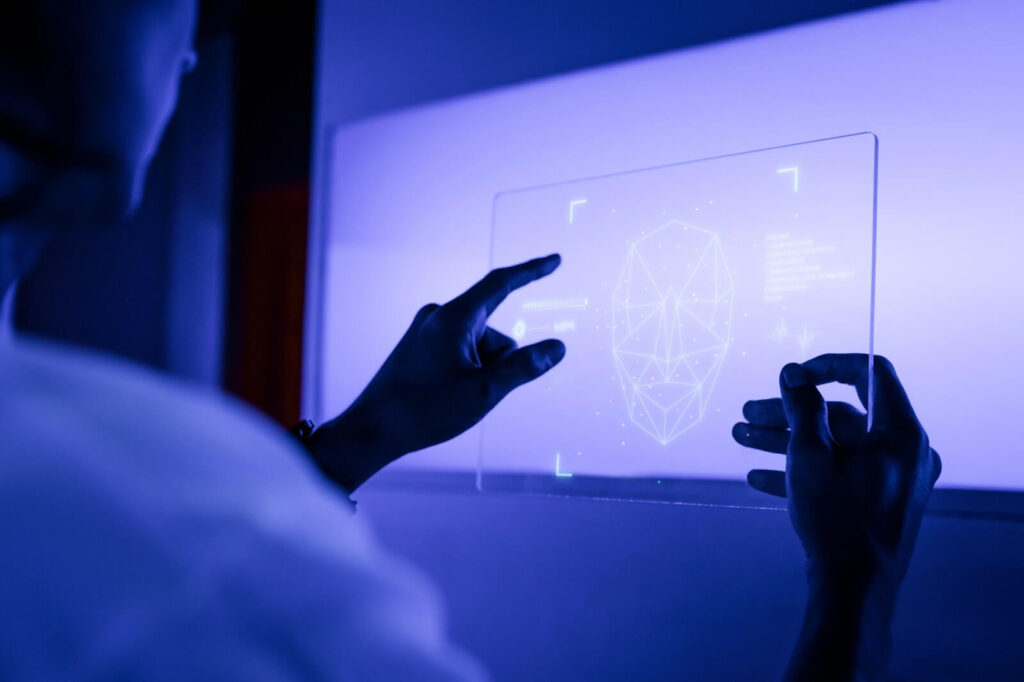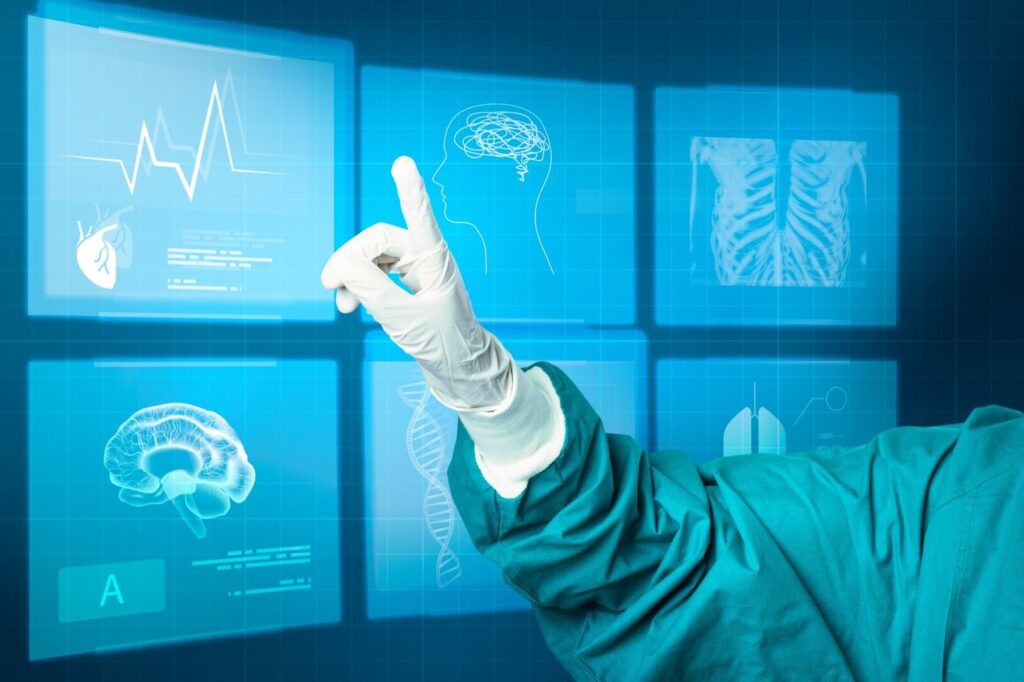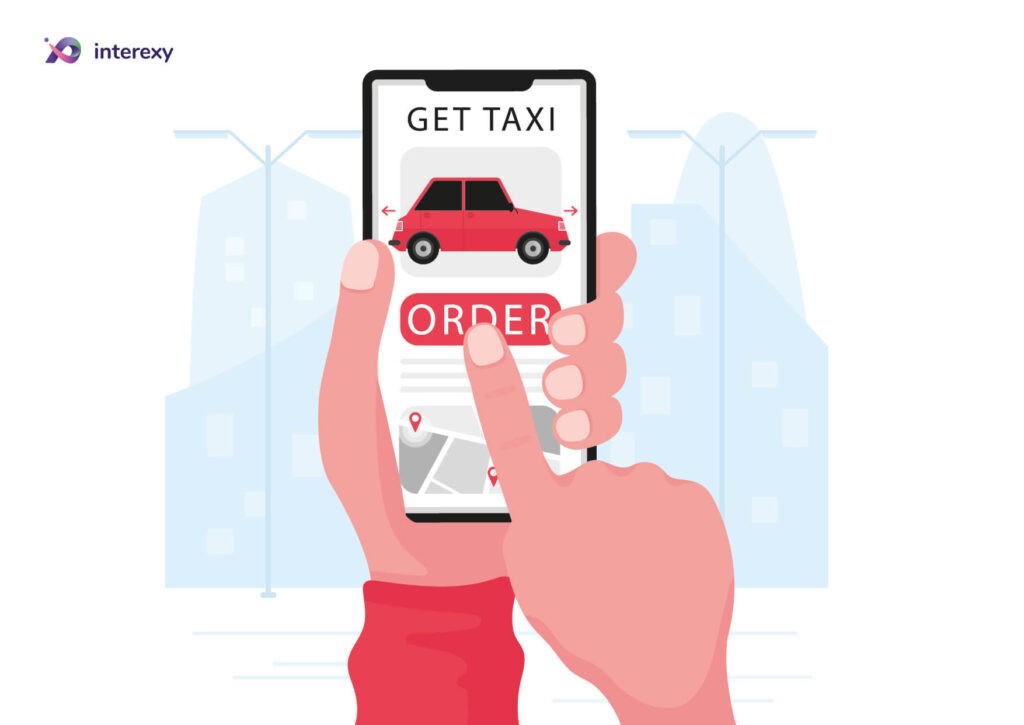October 14, 2022
A Guide to AI Use Cases in Healthcare in 2023
Table of content
Since the healthcare industry was the one experiencing great changes in times of COVID-19, healthcare organizations had to develop apps and services to provide their services during restrictions. Since 2019, this space has greatly improved, and now more technologies are developed to let companies and organizations reap the benefits of the software they’ve built.
Machine Learning (ML) and Artificial Intelligence (AI) have become the most used technologies in healthcare. They show the potential to offer data-driven clinical decision support (CDS) to doctors and healthcare staff, providing a new way of taking care of patients and increasing revenue. AI uses deep learning, which has been designed to identify patterns through algorithms and data to provide automated and valuable insights to healthcare providers.
Even though AI in the healthcare market was estimated at 11 billion U.S. dollars last year, experts believe that this technology will become greater in the future as its importance is realized. According to Statista, the global healthcare AI market will be worth almost 188 billion U.S. dollars by 2030, growing at a compound annual growth rate of 37 percent during the forest period.
Experts say that AI in healthcare has the potential to provide more accurate diagnoses and better care and reduce time and money spent by healthcare staff on administrative tasks, which also leads to increased efficiency in interacting and treating patients. As artificial intelligence algorithms have been invading every area of the healthcare industry in 2022, we made a list to keep track of in 2023
Related: Explore 7 unobvious benefits of AI app development

What is the Difference Between AI and Algorithms?
Before diving into differences, let’s first explore what AI means. At its core, AI represents the branch of computer science with the goal of answering Turing’s question in the affirmative. In contrast, an algorithm refers to a set of instructions — a preset, rigid, coded recipe that gets automatically executed when it encounters a trigger. In fact, AI is a very broad term covering a vast range of AI specializations and subsets. AI works as a group of algorithms that can change its algorithms and create new ones based on learned inputs and data instead of relying solely on the inputs it was designed to recognize as triggers.
Its ability to modify, adapt and grow based on new inputs and data is what gives AI its “intelligence.” In AI, all data is created, transformed, and moved without any need for data specialists. All business actions or decisions are created and implemented without any operators. Ai system learns continuously by accumulating data and business actions to provide outcomes that improve over time.
Benefits of AI in Medicine
Even though there is great hype around using AI in healthcare, not everyone knows the benefits of Artificial Intelligence in healthcare. Let’s explore them below:
Clinical Decision Making
According to the Healthcare Information and Management Systems Society, Artificial Intelligence in medicine has greatly improved clinical decision-making. That is because of AI’s ability to allow healthcare staff to make decisions based on essential, real-time data, which can be later used to accurately diagnose patients, plan treatments, and manage population health. Ai solutions have been shown to leverage insights in genomic, biomarker, and phenotype datasets, while also some solutions are specialized in radiology, pathology identification, and ophthalmology.
Streamlining Processes
Since the AI market has developed rapidly, healthcare organizations can now use some software that may identify possible markers on radiology images. In addition, moist healthcare companies and private clinics have already implemented AI that eases the physician admin burden by transferring clinical notes and streamlining doctor appointments by tracking patients’ data and care recommendations.
Data Sharing
Artificial Intelligence can be used to track patient data more accurately, which is essential in 2023. This allows healthcare staff to provide a more accurate diagnosis, patient care, and improved doctor time-to-patient ratios. A High level of insights provided by AI can provide a huge value to the medical profession since it can fully streamline patient care and reduce potential human issues by addressing their root causes earlier.
Saves Time & Resources
Since AI automates many vital processes, healthcare professionals get more time to interact with patients and diagnose illnesses and ailments. AI is well-known for reducing the costs, time, and resources the clinic needs to operate efficiently. And this is a huge benefit in 2023 since time is essential for any organization that wants to survive during market turbulence. In fact, around $200 billion is regularly wasted in the healthcare industry annually. And the lion’s share of this money is unnecessary costs that are attributed to administrative strains.

Early Diagnosis
AI-driven solutions and services can rely on patient data to assess previous and current health conditions. Since AI compares details about diseases and treatments, healthcare specialists can deliver more early and accurate diagnoses. Several healthcare applications and platforms contain databases that compute millions of symptoms and diagnoses. In fact, AI helps predict potential health issues based on analysis and previous conditions that can be encountered in the future.
Efficient and Unique Assistance in Surgery
The development and increased use of AI in healthcare also became a driving factor for robotic application development. The same happens with machine learning used in surgeries. Now organizations can use AI Surgical Systems that can execute the smallest movements showing 100% accuracy. Therefore, surgeons can now perform complex operations with high efficiency and reduced risks of side effects, blood loss, and less pain. In fact, post-surgery recovery has also become faster and easier.
Enhanced Human Abilities and Mental Health Support
AI-powered robots can now assist patients working with medical staff. For example, exoskeleton robots have helped paralyzed patients regain their mobility with less help from caretakers. Now clinics and healthcare organizations can use the help of dedicated robot companions and conversationalists that perform vital tests and checks, including sugar levels, blood pressure, temperature, and even pills schedule. Mental health problems are growing, so there are robots that are specially designed to help depressed patients due to their in-built analytic capabilities.
Related: Explore how mobile apps are transforming the healthcare industry
Top 6 Use Cases for Smart AI Algorithms in Healthcare
Virtual Nursing Assistants
As we mentioned, Artificial Intelligence in healthcare can help reduce costs and resources needed for efficient care. Medical facilities have to deal with high volumes of patients and face a list of challenges to keep care costs low and improve outcomes. In particular, nurses should take care of too many patients, which may reduce the quality of care. Therefore, any technology that can reduce the load on nurses and reduce costs and resources in clinics is always welcome.
As a result, virtual nursing assistants represent intelligent assistants that help perform a vast range of simple yet valuable tasks, including monitoring patients’ vitals in remote conditions regardless of the time of the day and alerting caregivers and clinicians when a patient’s symptoms are alarming.
Detecting Dementia
Based on a 2018 study, dementia is a severe condition that costs up to $500 billion for healthcare organizations worldwide every year. Statistics show that nearly 1 in 3 children born in 2015 and beyond may suffer from dementia. Therefore, early detection and diagnosis of this severe condition are essential, potentially saving a whopping $118,000 per patient. For example, Cognitive Neurosciences built a sensitive diagnostic tool that has the potential to perform the entire cognitive assessment test on Apple iOS devices.
Intelligent Robot-Assisted Surgery
Robot surgeons are not new in healthcare. In fact, Machine Learning and Artificial Intelligence have already been used during surgeries and training, helping doctors learn how to perform complex operations. Intelligent robot assistance has already been tested for years since they have been shown to prevent most human errors linked with fatigue and exhaustion. Surgery procedures require lots of skills, patience, and precision, so the experience and skills of mechanical surgeons do not falter even when working for days without rest, unlike humans.
Diagnosing Autism with a HIPAA-Compliant Platform
Cognoa, a digital behavioral health company, has developed an AI-based diagnostic HIPAA-compliant tool that can help spot early signs of Autism in children. Showing a 90% accuracy rate, this AI-based tool is highly precise and efficient and can help doctors improve the lives of patients with Autism.

Improving Security and Reducing Fraud
Wise use of ML and AI in medicine can help greatly improve the security of patient data by increasing protection against unwanted access and other threats. That is because AI is able to track all kinds of malicious activity, including potential hacks or suspicious accesses, allowing security teams to efficiently monitor only the most vulnerable activities.
Avoiding Unnecessary Surgery
Healthcare organizations and clinics spend millions on unnecessary tests and operations since they cannot always diagnose the illness from the first time. Since AI helps doctors provide a more accurate diagnosis, both patients and clinics can avoid unnecessary analysis and surgeries.
Future of Artificial Intelligence Algorithms in Healthcare
Just like with any technology that quickly gains popularity, it could be hard sometimes to predict the future AI for healthcare. What experts can see clearly is that medical data is becoming digitalized and standardized, meaning large, multi-site, or even international data pools containing consistent data will soon be available.
When properly trained with the amount of information, ML will automate an expanding list of tasks, which increases both the precision and versatility of these systems. Since AI algorithms are going to become more intelligent over time, users will automatically reap benefits from treatments they performed in the past while also providing their consent to share this data.
Regardless of some beliefs, AI’s algorithms will exist to support and not replace humans in the healthcare space. Working alongside advanced software, medical professionals will be able to provide better patient care, make accurate diagnoses and boost data security.
How Can Interexy Help?
We are an experienced app & web development company with years of experience in various fields. However, since COVID-19, our main focus has been healthcare app development services, so we work with different clinics, allowing them to get stable and efficient software. Since our team comprises highly-skilled developers, we pack our apps and services with the latest technologies, including ML and AI development services.
Final Thoughts
While there are some portions of risks and challenges, it is evident that robotics and AI will bring numerous benefits to the global healthcare ecosystem. AI-powered tools and services can help healthcare organizations and clinics provide better patient care, make accurate diagnoses, detect illnesses in their early stages and reduce costs. If you want to power your healthcare product with AI or have questions, book a free consultation with our experts!
Looking out for great healthcare app ideas? You choose the right place to stop. We have carefully crafted this article to help you find iOS and android medical app ideas you can consider developing for your startup in 2023.
If you’re thinking of storming the healthcare industry with an innovative healthcare app idea, contact us for a detailed estimate. Our fully-packed telehealth app development company in the USA is ready to cover all your needs and ideas!
FAQs
What are Smart AI Algorithms in Healthcare?
Artificial intelligence in healthcare represents an overarching term used to describe the use of ML algorithms, tools, or artificial intelligence (AI), to mimic human cognition in the data detection, analysis, presentation, and realization of complex medical data.
How is Artificial Intelligence AI used in healthcare?
There are many ways how AI can be used in healthcare. For example, AI provides a more accurate diagnosis, detects early signs of severe health issues, provides more efficient surgeries, improves security, and reduces the load on nurses.
Which Smart Algorithms are Used in Healthcare?
Depending on the purpose, healthcare can use energy-aware optimization algorithms, machine learning, deep learning in telemedicine optimization, security enhancement in medical cyber-physical systems, and decision algorithms.















